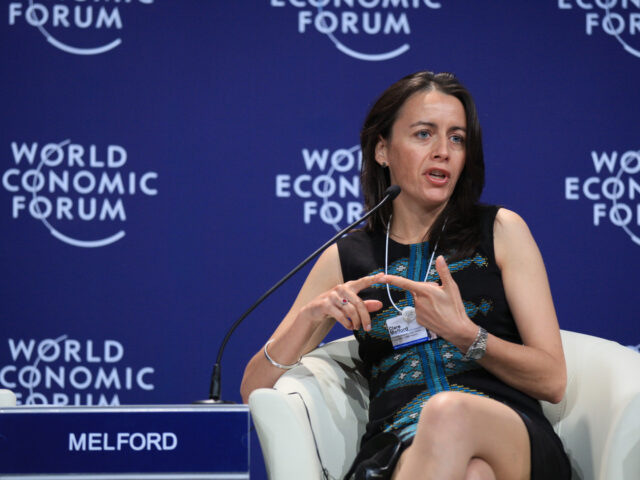Following the defunding from the UK government, Britain’s paper of record, The Times of London, has joined the chorus of criticism against the left-wing Global Disinformation Index as “self-appointed monitors” which stifle independent journalism to conform with their “ideological prejudice”.
There is a growing recognition in Britain of the malign influence of organisations such as the Soros-backed Global Disinformation Index (GDI) on press freedoms and that rather than acting as neutral arbiters of information, so-called fact-checkers and anti-disinformation groups are nothing more than activists bent on advancing their agenda.
Such was the sentiment expressed by The Times of London’s editorial team in an article published on Monday, which declared: “Self-appointed monitors of news accuracy such as the Global Disinformation Index can undermine objective reporting by penalising sites they disagree with.”
“Though the GDI presents itself as an institution devoted to the promotion of “neutrality, independence and transparency”, in practice it has helped to stymie valuable and independent-minded journalism on the basis of little more than ideological prejudice,” Britain’s paper of record added.
The condemnation from The Times comes in the wake of former British prime minister and current foreign minister, Lord David Cameron announcing last month that the Foreign Office would no longer fund the Global Disinformation Index for failing to “uphold our values” such as freedom of speech.
The Foreign, Commonwealth and Development Office had previously invested £2.6 million in British taxpayer money to the GDI over three years starting in 2019 as a part of its efforts to counter so-called disinformation from Russia about the war in Ukraine, and alleged conspiracy theories surrounding elections or climate change. The GDI has also received backing from the European Union and Germany’s Foreign Office.
While the GDI initially claimed to seek to expose “deliberately false content, designed to deceive”, it later expanded its mission to include policing of the vaguely termed “adversarial narratives”. World Economic Forum acolyte and GDI Founder Clare Melford, previously of George Soros’ Open Society Foundations, explained that this enabled the Global Disinformation Index to target topics deemed to be “harmful” or “divisive”.
“The creeping manner in which its self-ascribed remit has shifted illustrates a sinister irony of the anti-disinformation industry: in setting themselves up as neutral arbiters of accuracy, the influence of their own biases risks creating a new form of misinformation,” The Times wrote on Monday.
The GDI drew the ire of British politicians after placing the centrist Unherd website on its “Dynamic Exclusion” blacklist of conservative media outlets, which includes Breitbart News, the Blaze, the Daily Wire, Judicial Watch, the Washington Times, RealClearPolitics, and the Washington Examiner, among others.
Those placed on the blacklist of supposed purveyors of “disinformation” face advertising boycotts, with advertising firms increasingly disseminating their ads on websites through third-party internet firms, many of whom rely on the GDI or other supposedly neutral fact-checkers to determine whether a site is suitable to host their ads.
“These companies act as invisible gatekeepers within the vast machinery of online advertising,” Unherd editor-in-chief Freddie Sayers said last month following his website’s inclusion on the blacklist.
Unherd claimed that the GDI informed them of their decision to blacklist the site for allegedly promoting “anti-LGBTQI+ narratives” and for hosting so-called “gender critical” feminists such as author Julie Bindel and former professor Kathleen Stock, both of whom have challenged the transgender agenda from a left-wing feminist perspective.
“Apparently the GDI equates ‘gender-critical’ beliefs, or maintaining that biological sex differences exist, with ‘disinformation’ — despite the fact that those beliefs are specifically protected in British law and held by the majority of the population,” Sayers noted.
After being placed on the Global Disinformation Index blacklist, the website claimed that its advertising revenue had dwindled to two per cent of what it once was.
The GDI is not only facing pushback in Britain. In February, Breitbart News reported that the U.S. State Department-funded National Endowment for Democracy (NED) pulled its funding from the group, given that its targeting of American news outlets violated its mandate to only work outside of the United States. GOP House Conference Chair and NED board member Elise Stefanik (R-NY) was reportedly a leading voice in the funding cut.
“The State Department should not be funding woke organizations who seek to censor and demonetize conservative outlets,” Congresswoman Stefanik said. “House Republicans will assert our oversight over the State Department’s funding of these type of groups.”
Aside from the chilling effect on the news industry and the negative financial impacts felt by conservative media organisations, the Global Disinformation Index may have even swayed certain elections.
Paul Fitzpatrick, the president of the 1792 Exchange, told Breitbart News Daily host Alex Marlow last month that the GDI “was active in the months leading up to the midterm elections” in the United States.
“And so, we don’t know how much information was blocked leading up to the midterm elections. Could that have changed the outcomes of some races that were very close? That’s very possible. So, GDI is, in essence, a tool to choke information,” Fitzpatrick said.

COMMENTS
Please let us know if you're having issues with commenting.